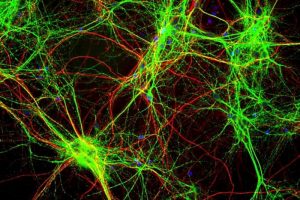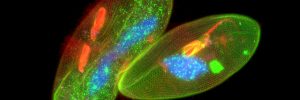In May 2021 the National Science Foundation (NSF) awarded a Technology Enhancement for Commercial Partnerships (TECP) Award to the Stereology Resource Center (SRC Biosciences® or “SRC”) and the University of South Florida in Tampa, Florida.
This TECP grant expands the SRC’s existing Phase II Small Business Technology Transfer (STTR) grant, “Deep Learning Technology For The Microscopic Analysis Of Stained Cells Using Unbiased Methods.” The new funding will enable SRC to accelerate the development and commercialization of automatic stereology of fluorescent images (FluoroStereologer™), a software platform for quantifying biological structures labelled by immunofluorescent staining.
SRC’s state-of-the-art combination of deep learning unbiased stereology adds a powerful ability to address key problems in biomedical research. The optimized deep learning models will be incorporated into the existing hardware of the Stereologer® system for further testing and customer evaluation against other methods for quantifying fluorescent images.
“Using deep learning validation our team has demonstrated automatic stereology of immunostained NeuN neurons in tissue sections achieves comparable accuracy but with 100% reproducibility (Test-Retest) and 3-5x higher efficiency,” said Dr. Peter R. Mouton, SRC Director and Chief Scientific Officer. “The new TECP funding allows SRC to expand this approach to fluorescent images generated by wide-field fluorescent and confocal microscopes.”
FluoroStereologer will support stereological quantification of high-resolution fluorescent images. The SRC is now actively establishing technology transition relationships with the manufacturers of a wide variety of commercial microscopes, including wide-field fluorescent systems and confocal microscopes with and without image deconvolution.
“We are keen to fully explore the benefits of FluoroStereologer on images from our target customers’ fluorescent microscopes. “This second-generation prototype is effectively an extension of deep learning applied to subcellular particles to meet specific customer needs before rapidly scaling into other research disciplines,” said Scott McElhiney, Chief Stereology Specialist at SRC Biosciences.
The dramatically increased power provided by FluoroStereologer can be applied to testing key hypotheses that require higher resolution, faster data throughput and lower personnel costs. The current NSF TECP award follows NSF SBIR Phase I and Phase II projects that provided the foundation for these capabilities.


